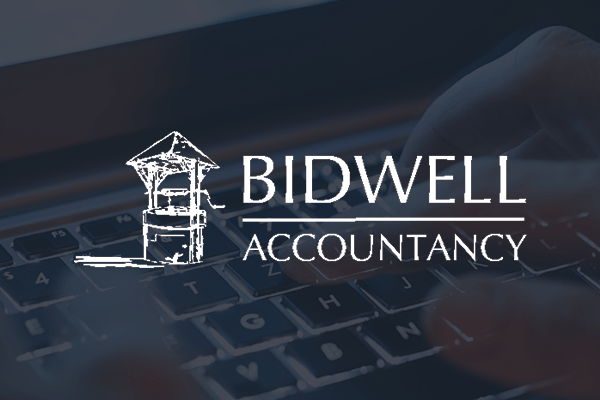July Newsletter

We have some really useful articles in this month’s newsletter. If you are involved in property as a landlord then you’ll need to read more on the announcement by the government to significantly change tenants’ rights. These are quite radical and work hard for tenants although there is some new support for landlords as well. There’s a reminder on Trivial Benefits exemption - good to know if you provide benefits to your employees. If your income exceeds £100,000 it is worth discussing options to protect your personal tax allowance - our article explains why you should consider tax planning to help you keep more of your earnings. Our final piece is an interesting explanation of goodwill in terms of your business and how it can affect the value of your business. And, as ever, we end with important dates for your diary. Enjoy a productive month ahead.
New protection for tenants
The government has announced their intention to radically overhaul the rights of tenants. The changes announced include:
For tenants
- Helping the most vulnerable by outlawing blanket bans on renting to families with children or those in receipt of benefits.
- For the first time, ending the use of arbitrary rent review clauses, restricting tribunals from hiking up rent and enabling tenants to be repaid rent for non-decent homes. This will make sure tenants can take their landlord to court to seek repayment of rent if their homes are of unacceptable standard.
- Making it easier for tenants to have much-loved pets in their homes by giving all tenants the right to request a pet in their house, which the landlord must consider and cannot unreasonably refuse.
- All tenants to be moved onto a single system of periodic tenancies, meaning they can leave inferior quality housing without remaining liable for the rent or move more easily when their circumstances change. A tenancy will only end if a tenant ends it or a landlord has a valid reason, defined in law.
- Doubling notice periods for rent increases and giving tenants stronger powers to challenge them if they are unjustified.
- Giving councils stronger powers to tackle the worst offenders, backed by enforcement pilots, and increasing fines for serious offences.
For landlords
- A new Private Renters’ Ombudsman will be created to enable disputes between private renters and landlords to be settled quickly, at low cost, and without going to court.
- Ensuring responsible landlords can gain possession of their properties efficiently from anti-social tenants and can sell their properties when they need to.
- Introducing a new property portal that will provide a single front door to help landlords to understand, and comply with, their responsibilities as well as giving councils and tenants the information they need to tackle rogue operators.
According to government sources these reforms will help to ease the cost-of-living pressures renters are facing, saving families from unnecessarily moving from one privately rented home to another and thereby saving hundreds of pounds in moving costs.
Not so trivial benefits
The trivial benefits exemption allows you to provide benefits to employees without your employee suffering a tax charge on the benefit. Likewise, there is no Class 1A National Insurance for you, the employer, to pay.
To count as ‘trivial’ for the purposes of the exemption, the benefit must meet all of the following conditions:
- the cost of providing the benefit is £50 or less.
- the benefit is not cash or a cash voucher.
- your employee is not contractually entitled to the benefit.
- the benefit is not provided in recognition of particular services.
Unless your company is a close company (generally a small company) and trivial benefits are provided to a director or other office holder, there is no limit on the number of trivial benefits that you can give to a particular employee in the tax year.
However, the cumulative provision of trivial benefits to directors or other office holders of close companies is capped at £300 for each tax year.
If you provide the benefit to a number of your employees and it is impracticable to work out the actual cost of each individual benefit provided to each individual employee, you can work out the average cost instead. As long as this does not exceed £50 the cost condition will be met.
Loss of personal allowance
If your taxable income exceeds £100,000 you will suffer a reduction in your personal tax allowance.
For every £2 that your income exceeds £100,000, £1 will be knocked off your allowance. The reduction is progressive and means that once your income exceeds £125,140 your personal allowance of £12,570 will be reduced to zero.
As Income Taxpayers with income in the range, £100,000 to £125,140, are paying tax at 40%, the gradual loss of the personal tax allowance means that the effective rate of tax in this range is 60% not 40%.
Accordingly, if you are affected by this process, tax planning to reduce your income below the £100,000 threshold would be cost effective.
This may involve consideration of pension top-ups, deferring income, sacrificing salary for additional holidays, or other planning options that may be available to you.
Please call so we can help you consider your options.
What is goodwill?
In a business context, goodwill could be defined as the amount that a buyer would be prepared to pay for your business over and above the valuation of the business net assets.
Very often, it is the relationships that you have built with your customer base that is the most valuable asset. Buyers will be keen to acquire these relationships and will place greater reliance on this “asset” than any equipment or other on-balance sheet item you may be selling.
How is goodwill valued
There is no fixed formula for valuing goodwill. Its value is finalised by negotiation between buyers and sellers.
There are formulaic methods for including goodwill based on the ability of the buyer to recover their investment, from the business purchased, over a fixed term, say three to five years. Unsurprisingly, buyers of higher risk businesses will want a faster pay-back.
Annual valuations
Although your valuation of your business may be higher or lower than the amount a buyer is prepared to pay there is value on using a consistent process to produce an annual valuation. In this way you can monitor the growth of your business and work at developing those characteristics that will secure a higher price when you come to sell, for example, building an independent management team.
Tax Diary July/August 2022
1 July 2022 - Due date for corporation tax due for the year ended 30 September 2021.
6 July 2022 - Complete and submit forms P11D return of benefits and expenses and P11D(b) return of Class 1A NICs.
19 July 2022 - Pay Class 1A NICs (by the 22 July 2022 if paid electronically).
19 July 2022 - PAYE and NIC deductions due for month ended 5 July 2022. (If you pay your tax electronically the due date is 22 July 2022).
19 July 2022 - Filing deadline for the CIS300 monthly return for the month ended 5 July 2022.
19 July 2022 - CIS tax deducted for the month ended 5 July 2022 is payable by today.
1 August 2022 - Due date for corporation tax due for the year ended 31 October 2021.
19 August 2022 - PAYE and NIC deductions due for month ended 5 August 2022. (If you pay your tax electronically the due date is 22 August 2022)
19 August 2022 - Filing deadline for the CIS300 monthly return for the month ended 5 August 2022.
19 August 2022 - CIS tax deducted for the month ended 5 August 2022 is payable by today.

Unit 157, Milton Keynes Business Centre,
Foxhunter Drive, Milton Keynes,
Buckinghamshire, MK14 6GD
Bidwell Accountancy




